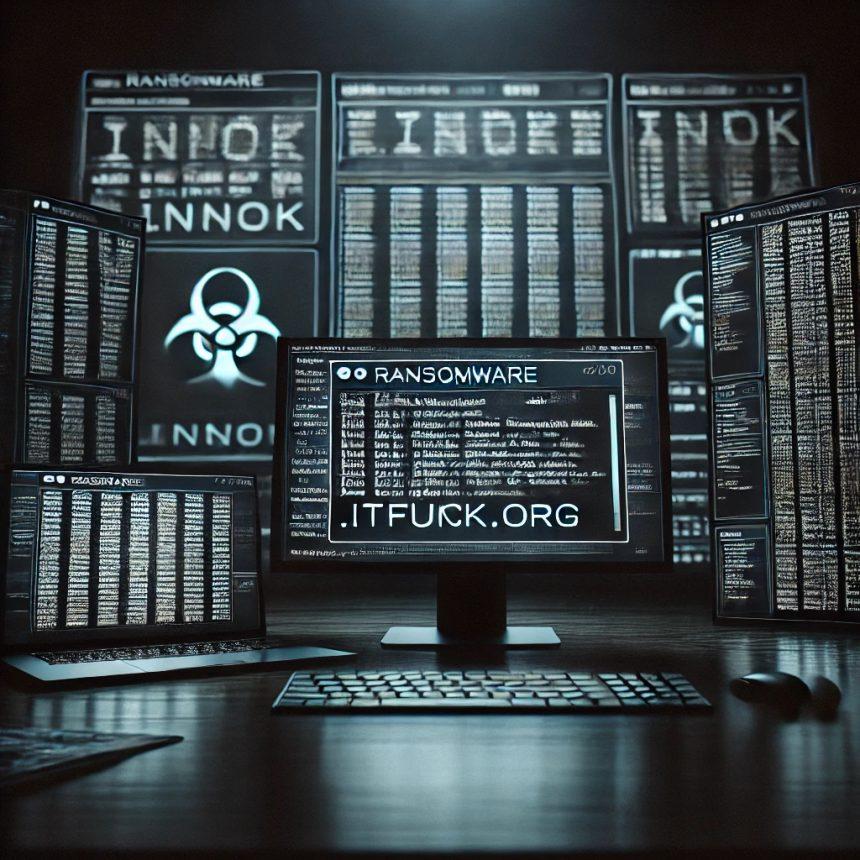Safeguarding personal and business data from cyber threats has never been more crucial. Ransomware attacks continue to evolve, targeting individuals and organizations with devastating consequences. One such sophisticated strain is the CmbLabs Ransomware, a newly identified threat designed to encrypt files and demand ransom payments. Understanding how this ransomware operates and implementing strong cybersecurity measures can help users defend against potential attacks.
Ransomware Threat Overview
| Feature | Details |
|---|---|
| Name | CmbLabs Ransomware |
| File Extension | .cmblabs |
| Ransom Notes | DECRYPT_INFO.hta, DECRYPT_INFO.txt |
| Data Theft | Yes, exfiltrates sensitive information |
| Encryption Method | AES/RSA encryption |
| Payment Demand | Ransom requested for decryption key |
| Spread Methods | Phishing emails, compromised software, fake updates, network exploits |
Remove annoying malware threats like this one in seconds!
Scan Your Computer for Free with SpyHunter
Download SpyHunter now, and scan your computer for this and other cybersecurity threats for free!
Once the CmbLabs Ransomware infiltrates a system, it appends the .cmblabs extension to encrypted files, rendering them inaccessible. For example, report.pdf becomes report.pdf.cmblabs, making the file unusable without a decryption key.
Ransom Notes and Attackers’ Demands
After encryption, CmbLabs Ransomware drops ransom notes named DECRYPT_INFO.hta and DECRYPT_INFO.txt. The ransom note reads:
ALL YOUR FILES WAS ENCRYPTED
!!!ALL YOUR DATA HAS BEEN COMPROMISED AND DOWNLOADED!!! DO NOT CONTACT A DATA RECOVERY COMPANY - THEY WILL NOT BE ABLE TO HELP YOU. THEY WILL CONTACT US IN ANY CASE AND WILL EARN THEIR COMMISSION FROM YOU
This information has been downloaded:
- Employees personal data.
- Complete network map including credentials for local and remote services.
- Private financial information including: clients data, bills, budgets, annual reports, bank statements.
IMPORTANT:
DO NOT MODIFY ENCRYPTED FILES YOURSELF
DO NOT USE THIRD PARTY SOFTWARE TO RESTORE YOUR DATA
YOU MAY DAMAGE YOUR FILES, IT WILL RESULT IN PERMANENT DATA LOSS
HOW TO CONTACT US:
1. Download and install Tor Browser from: hxxps://torproject.org/
2. Use your personal link: -Data Theft and Potential Consequences
Even though the ransom note does not explicitly threaten data leaks, cybersecurity researchers suspect that CmbLabs Ransomware exfiltrates sensitive data before encrypting files. Stolen data may include:
- Network credentials
- Financial records (budgets, banking information)
- Personal data (employee/client details)
Cybercriminals may use this stolen data to extort victims further or sell it on illicit marketplaces.
The Ransom Payment Dilemma
Victims of ransomware attacks often consider paying the ransom. However, cybersecurity experts strongly discourage this practice due to:
- No guarantee of data recovery – Attackers may refuse to provide the decryption key.
- Encouraging future attacks – Paying the ransom funds further cybercrime.
- Legal risks – Some jurisdictions prohibit making payments to cybercriminal groups.
Instead of paying, victims should focus on removing the ransomware and restoring files from secure backups.
How the CmbLabs Ransomware Spreads
CmbLabs Ransomware utilizes multiple infection vectors:
- Phishing Emails – Fraudulent emails with malicious attachments.
- Compromised Software – Downloads from unofficial sources.
- Drive-By Downloads – Hidden downloads from compromised websites.
- Malvertising – Deceptive ads leading to malware downloads.
- Exploiting Network Vulnerabilities – Spreads within compromised networks.
Comprehensive Removal Guide
Remove annoying malware threats like this one in seconds!
Scan Your Computer for Free with SpyHunter
Download SpyHunter now, and scan your computer for this and other cybersecurity threats for free!
Step 1: Enter Safe Mode with Networking
- Restart your computer.
- Press F8 (or Shift + Restart on Windows 10/11) before Windows loads.
- Select Safe Mode with Networking.
Step 2: Terminate Malicious Processes
- Open Task Manager (
Ctrl + Shift + Esc). - Locate suspicious processes.
- Right-click and select End Task.
Step 3: Remove Malicious Files
- Open File Explorer.
- Navigate to
C:\Users\[Your User]\AppData\Roamingand delete suspicious folders. - Check
C:\ProgramDatafor unusual files.
Step 4: Delete Ransomware Registry Entries
- Press
Win + R, typeregedit, and press Enter. - Navigate to:
HKEY_CURRENT_USER\SoftwareHKEY_LOCAL_MACHINE\SOFTWARE\Microsoft\Windows\CurrentVersion\Run
- Look for suspicious entries and delete them.
Step 5: Scan Your System with SpyHunter
To ensure complete removal, run SpyHunter, a professional anti-malware tool, to detect and eliminate ransomware-related files.
Step 6: Restore Files from Backup
- If backups are available, restore encrypted files from cloud or external storage.
- If no backups exist, try using third-party decryption tools (if available).
Preventive Measures to Avoid Future Infections
To safeguard against ransomware attacks like CmbLabs, follow these best practices:
- Backup Important Files Regularly – Maintain offline and cloud backups.
- Keep Software Updated – Patch vulnerabilities in your OS and applications.
- Use Strong Authentication – Enable multi-factor authentication (MFA).
- Avoid Suspicious Links & Attachments – Do not open emails from unknown senders.
- Install Reputable Security Software – Use SpyHunter or similar tools.
- Disable Macros in Office Files – Prevent malware from executing macros.
- Restrict Admin Privileges – Limit system access to necessary users.
- Monitor Network Traffic – Detect unusual activities early.
Conclusion
The CmbLabs Ransomware is a dangerous threat that encrypts files and demands ransom payments. However, paying the ransom is not advisable, as it does not guarantee file recovery and may fund further cybercrime. Instead, users should focus on removing the malware, restoring backups, and implementing strong security measures to prevent future infections.
Remove annoying malware threats like this one in seconds!
Scan Your Computer for Free with SpyHunter
Download SpyHunter now, and scan your computer for this and other cybersecurity threats for free!





